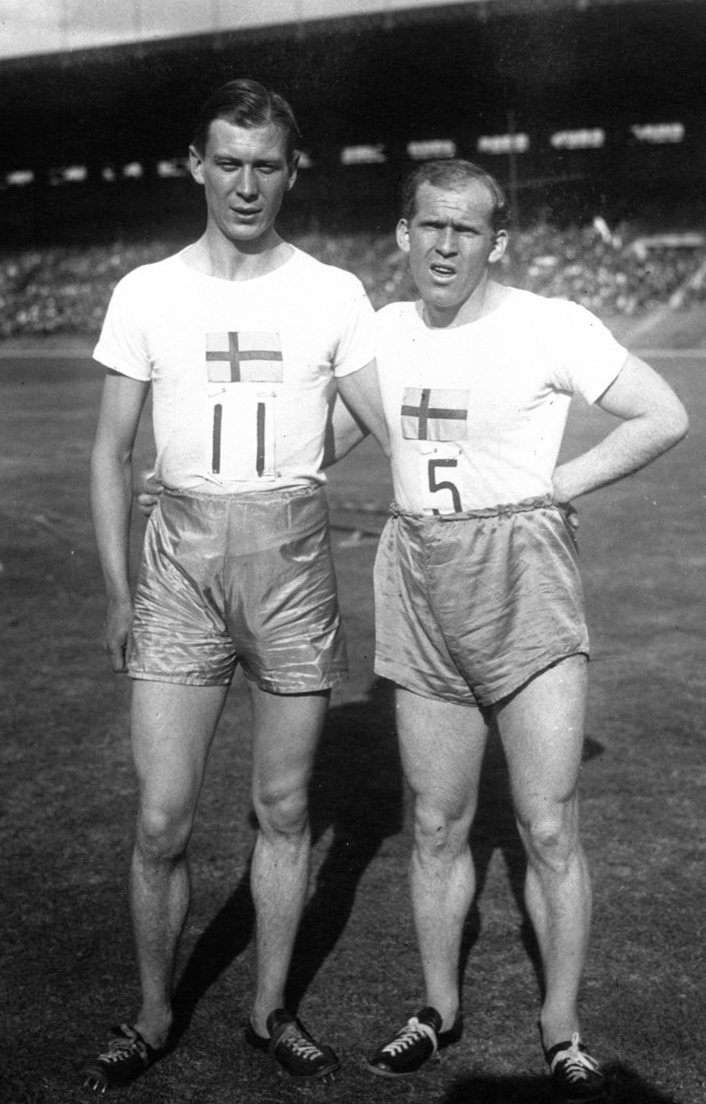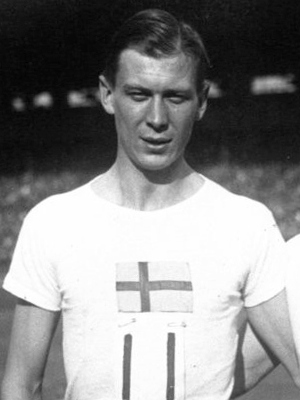1. Overview
Nils Engdahl (November 4, 1898 - September 10, 1983) was a prominent Swedish track and field athlete specializing in sprint events. He competed in the 1920 Summer Olympics and the 1924 Summer Olympics, achieving significant success by securing a bronze medal in the 400 metres in 1920 and a silver medal in the 4 × 400 metres relay in 1924. Throughout his career, Engdahl was a dominant force in Swedish athletics, holding national records and winning multiple national championships across various sprint distances. Beyond athletics, he was also actively involved in other sports, contributing to Sweden's sporting landscape.
2. Early life and background
Nils Engdahl was born on November 4, 1898, in Västerhaninge, Sweden. His early life saw him develop an interest in sports, which eventually led him to a distinguished athletic career.
2.1. Childhood and transition to athletics
During his childhood, Engdahl, alongside his brother Wilhelm "Wille" Engdahl, actively participated in football. They played for IFK Stockholm, a well-known sports club. It was in 1917 that Nils Engdahl made a significant transition, moving from football to focus on athletics. This shift marked the beginning of his competitive career as a runner.
3. Athletic career
3.1. Career overview


Engdahl's athletic career spanned from the late 1910s through the mid-1920s, during which he established himself as one of Sweden's top sprinters. He competed in a range of events, primarily focusing on distances from 100 to 800 metres. His personal best times included 10.7 seconds for the 100 metres (set in 1920), 48.2 seconds for the 400 metres (set in 1924), and 1 minute 57.5 seconds for the 800 metres (set in 1920). Engdahl was affiliated with clubs such as Järva IS, Ulriksdal, and Solna. In 1919, before his Olympic debut, he competed at the British AAA Championships, where he finished second in the 440 yards event, just behind Guy Butler. He was widely recognized as the best Swedish runner over the 100 to 400 metres distances for three consecutive years.
3.2. Olympic achievements
Engdahl represented Sweden in two Olympic Games, demonstrating his prowess on the international stage.
At the 1920 Summer Olympics in Antwerp, he achieved his first Olympic medal. He secured a bronze medal in the 400 metres, finishing behind Bevil Rudd of South Africa and Guy Butler of Great Britain. In the 4 × 400 metres relay event at the same Games, Engdahl's team finished in fifth place.
He returned for his second Olympic appearance at the 1924 Summer Olympics in Paris. While he did not win an individual medal in Paris, Engdahl played a crucial role in the Swedish 4 × 400 metres relay team. Competing alongside his teammates Artur Svensson, Erik Byléhn, and Gustaf Wejnarth, they earned a silver medal, finishing second only to the United States team.
3.3. National records and titles
Nils Engdahl was a dominant force in Swedish athletics, holding several national records and winning numerous titles throughout his career. He held the Swedish record for the 200 metres from 1920 to 1935, and for the 400 metres from 1918 to 1934. Between 1918 and 1927, he accumulated an impressive collection of national championship titles: he won the 100 metres four times, the 200 metres six times, and the 400 metres six times.
4. Other activities
Beyond his primary focus on track and field athletics, Nils Engdahl was also involved in other sports. Notably, he played bandy for Järva IS, continuing his participation in this sport until 1937.
5. Personal life
Nils Engdahl stood at 5.4 ft (1.65 m) tall and weighed 126 lb (57 kg). He later married Signe Johansson, an accomplished athlete herself, who was an Olympic diver.
6. Death
Nils Engdahl passed away on September 10, 1983, at the age of 84. He died in Bromma, Sweden.
7. Legacy and assessment
Nils Engdahl's athletic career left a significant mark on Swedish sports. As a two-time Olympic medalist and a consistent national record holder and champion across multiple sprint distances, he exemplified excellence and dedication in track and field. His achievements, particularly his contributions to the Swedish Olympic relay teams, highlighted the importance of teamwork and national representation in international competitions. Engdahl's long-standing national records and numerous national titles underscore his sustained dominance in Swedish sprinting for over a decade, cementing his legacy as one of the most prominent Swedish runners of his era.